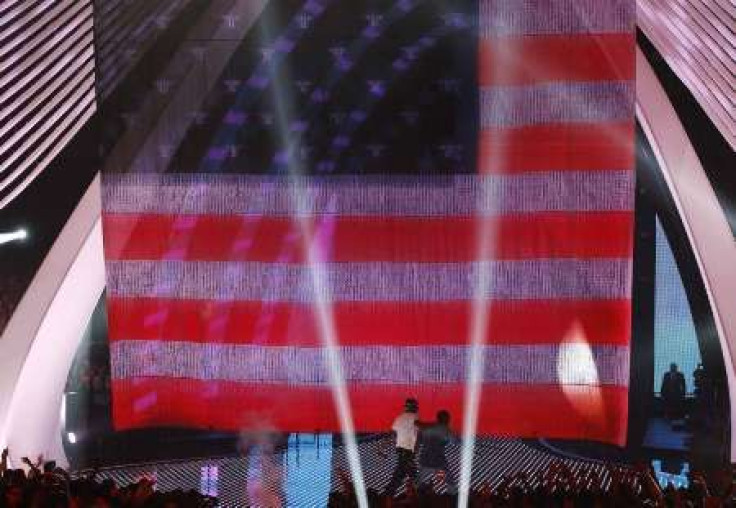In Ohio, A Day Before The Presidential Election, Jay-Z Admits At Final Obama Rally, 'I Got 99 Problems But Mitt Ain't One'

Jay-Z admits he has 99 problems, but Republican presidential candidate Mitt Romney is not one of them.
Performing at President Barack Obama’s final campaign rally in Ohio, the Brooklyn-born rapper wore a hoodie simply with the letter "B" on it, which has much symbolism, as it represents "Barack," his wife Beyonce, and his hometown.
Jay-Z performed many of his most popular songs, including, “Run This Town," “On to the Next One,” and "Public Service Announcement.”
When he rapped “99 Problems,” he changed the lyrics for the Ohio crowd. Instead of saying the original line, “I got 99 problems but a [expletive] ain’t one,” he said, “I got 99 problems but Mitt ain’t one.” Ohio, a swing state, could play a pivotal role in the final outcome of the presidential election.
During his set, Jay-Z spoke about what persuaded him to come to Ohio, from New York, to perform at Obama’s rally.
"This is testament to how someone's voice can be so powerful, that we're standing in Ohio. I got a phone call, like 'Jay? I need you down in Ohio. I need you to come down with the Boss,’” Jay-Z told the audience.
He then jokingly asked Obama if Michelle Obama would be there.
"And [Obama] said, 'no, Bruce Springsteen.'"
When Jay-Z finished his set, Obama took the center stage, telling the American people, "It is an incredible honor to have Jay-Z and Bruce Springsteen both on the same bill.
"And not just because I have them both on my iPod ... but because they tell American stories."
Earlier this month, Jay-Z was also featured in a new video released by the Obama campaign.
"When the president got into office initially, what he represented to a nation of kids was hope.
"You know, the hope of people all across the country, who would look and see themselves, and the possibilities,” Jay-Z says in the "Power of Our Voice" advertisement.
“For so long, there was this voice that was silenced out there as far as exercising your right to vote," Jay-Z added.
"I think it was a voice that was silent because people had lost hope. They didn’t believe that their voice mattered or counted.”
© Copyright IBTimes 2024. All rights reserved.












